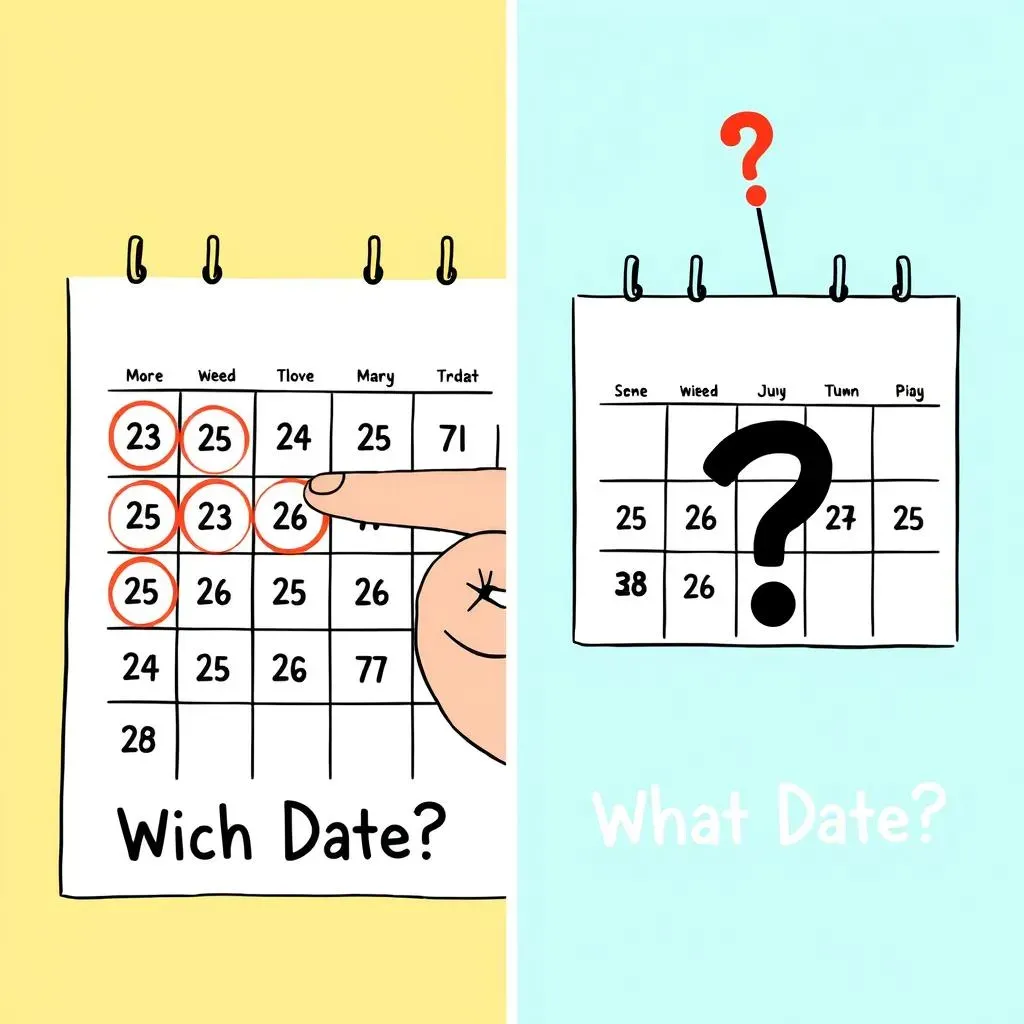Table of Contents
Ever stumbled over whether to ask "which date" or "what date"? You're not alone. It seems like a small thing, but getting it right can make your questions clearer and avoid any awkwardness. This article will untangle the mystery of "which date or what date", showing you when to use each one. We'll explore how "which date" often points to a specific selection, while "what date" tends to open things up. Think of it like this: "which" is like choosing from a menu, and "what" is like asking what's on special. Ready to finally nail down the difference and speak with confidence? Let's get started!
Exploring When to Use Which Date
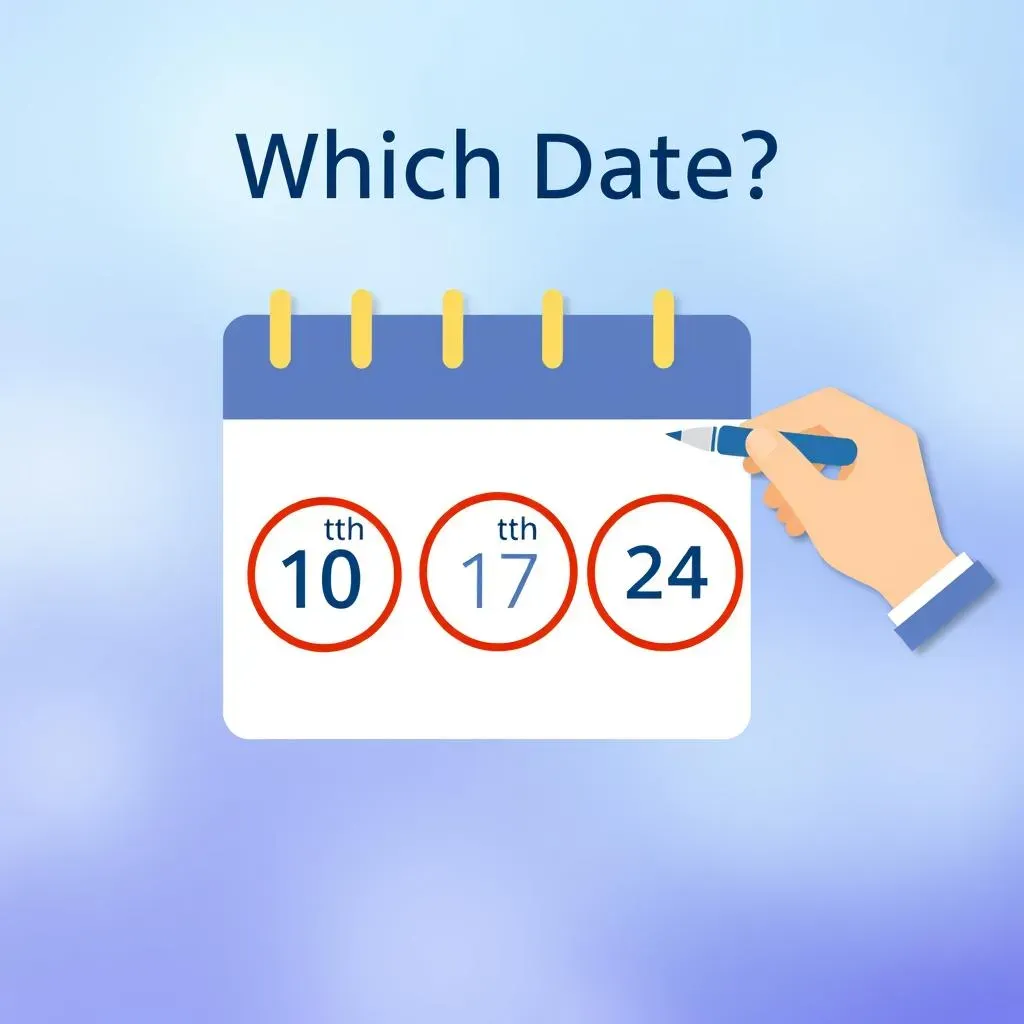
Exploring When to Use Which Date
Choosing from a Defined Set
Think of "which date" as your go-to when you've got a specific set of options in mind. It's like having a few birthdays circled on a calendar and asking someone, "Which date works best for your party?". You're not asking for just any date; you're asking for a selection from the dates already presented. It makes the choices clear and focused.
For instance, imagine you're planning a meeting. You've already checked everyone's availability and narrowed it down to three possible days. Asking "Which date out of these three suits you?" is much more direct than a general "What date are you available?". It streamlines the decision-making process.
When Specificity Matters
Using "which date" often implies that there's a need for a precise selection. It suggests that the answer isn't open-ended. Consider this: your doctor gives you two appointment slots. They might ask, "Which date would you prefer for your follow-up?". The emphasis is on choosing one specific date from the limited options provided.
It’s about clarity. If you're at a conference and the organizers announce, "We have workshops on the 15th and the 16th. Which date are you planning to attend?", they're guiding you towards a choice within a given framework. This avoids any ambiguity.
Scenario | Question |
|---|---|
Selecting from three available meeting times | Which date works best for the team meeting? |
Choosing an appointment from two options | Which date do you prefer for your check-up? |
Highlighting a Preference
"Which date" can also subtly convey that you're looking for a preference within a known set of possibilities. Let's say a friend is planning a weekend getaway and suggests, "We could go on the 10th or the 17th. Which date appeals to you more?". They've laid out the options, and they're asking for your favored one.
It’s not just about picking any date; it's about choosing the one that stands out as the better option from those presented. Think of a teacher saying, "We have two possible dates for the field trip – the 20th or the 27th. Which date do you think the students would enjoy more?". The focus is on selecting the preferred option from the available choices.
Understanding the Use of What Date
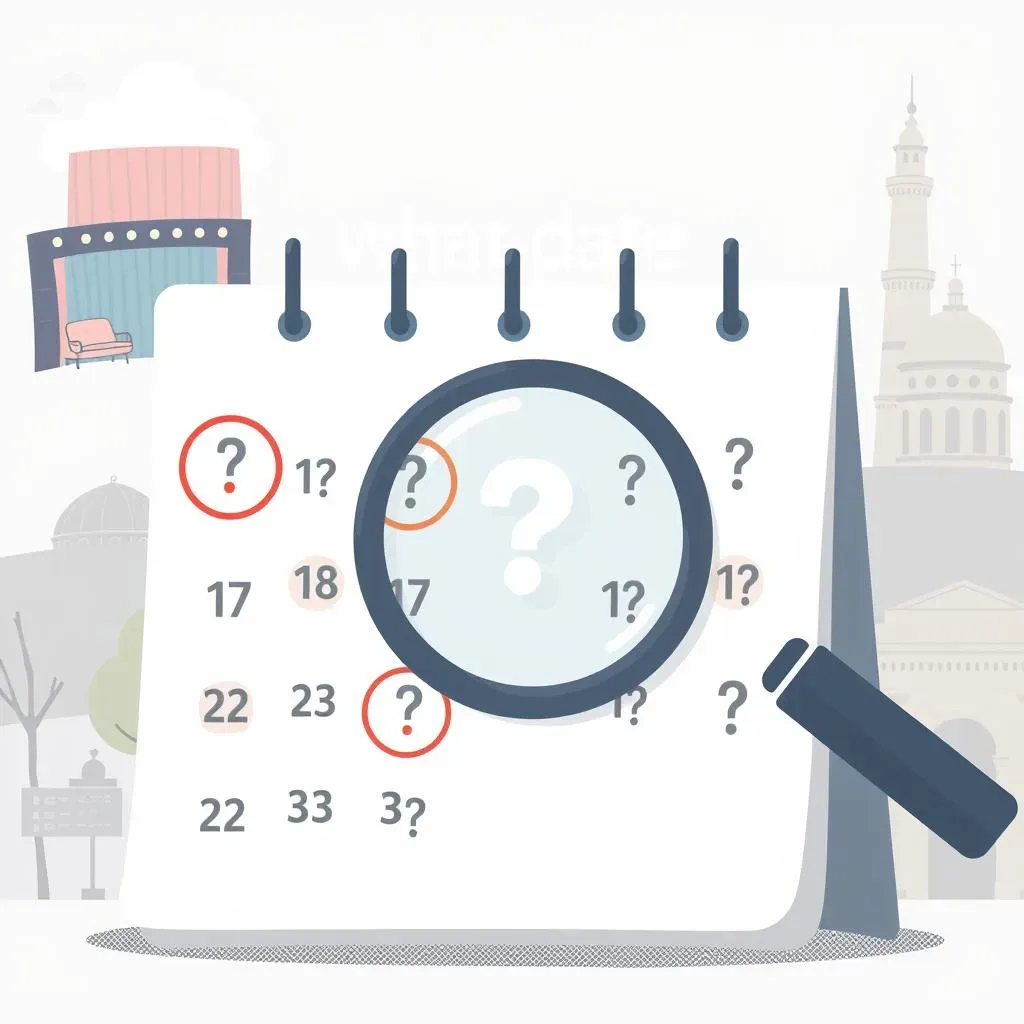
Understanding the Use of What Date
Open-Ended Inquiries
Now, let's flip the script and talk about "what date". Think of it as your go-to when you're asking about a date without any specific options in mind. It's like saying, "Hey, what date is your birthday?". You're not expecting them to pick from a pre-selected list; you genuinely want to know the date.
Imagine you're planning a surprise party and you're trying to figure out the best day. Asking "What date would be ideal for the surprise?" keeps things open. You're not limiting the answer; you're inviting suggestions. It’s all about exploring possibilities.
When Details Are Unknown
"What date" shines when you're seeking information about an unspecified time. It's useful when the details haven't been pinned down yet. For example, if you're curious about when a new movie is coming out, you might ask, "What date is the release?". There's no pre-existing list of dates; you're asking for the specific date it's scheduled.
Consider this: you're organizing a community event, and you need to know when the local park is available. Asking "What dates are the park available for booking?" is the right approach because you don't have a pre-set list of available dates. You're gathering information.
Scenario | Question |
|---|---|
Asking about an upcoming event's timing | What date is the concert happening? |
Inquiring about availability | What dates are you free next month? |
Gathering Information Broadly
Using "what date" often signals that you're in information-gathering mode. You're casting a wider net, looking for any relevant date. Think about asking a historian, "What date did World War II end?". There's no selection involved; you're asking for a factual piece of information.
It's about seeking knowledge. If you're planning a trip and asking a travel agent, "What dates are the cheapest to fly to Hawaii?", you're not choosing from a limited set. You're asking for information to help you make a decision. "What date" helps you explore the possibilities before narrowing things down.
Which Date or What Date: Key Differences
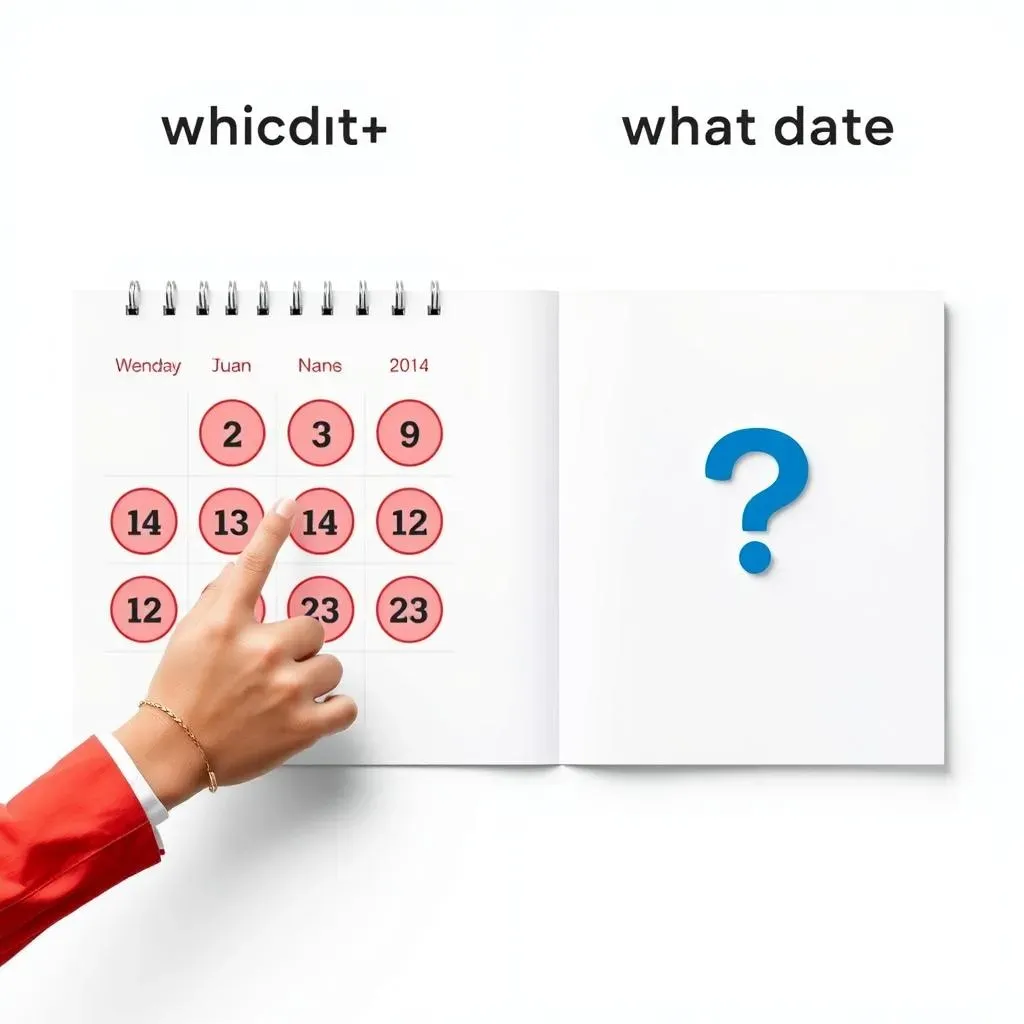
Which Date or What Date: Key Differences
Alright, let's get down to brass tacks. The core difference between "which date" and "what date" isn't some cosmic mystery. Think of "which" as the picky chooser, scanning a lineup for the perfect fit. "What," on the other hand, is the curious explorer, asking about something unknown. It's like being at an ice cream shop. If the server shows you three flavors and asks, "Which flavor would you like?", you're picking from a set. But if you walk in and ask, "What flavors do you have?", you're starting with a blank slate. See the distinction? It's about whether the options are already on the table, or if you're asking for the table to be set in the first place.
Feature | Which Date | What Date |
|---|---|---|
Context | Choosing from a limited set of options. | Asking about an unspecified date. |
Specificity | Implies a need for precise selection. | Seeks information broadly. |
Analogy | Selecting from a menu. | Asking what's on the menu. |
Making the Right Choice: Which Date and What Date
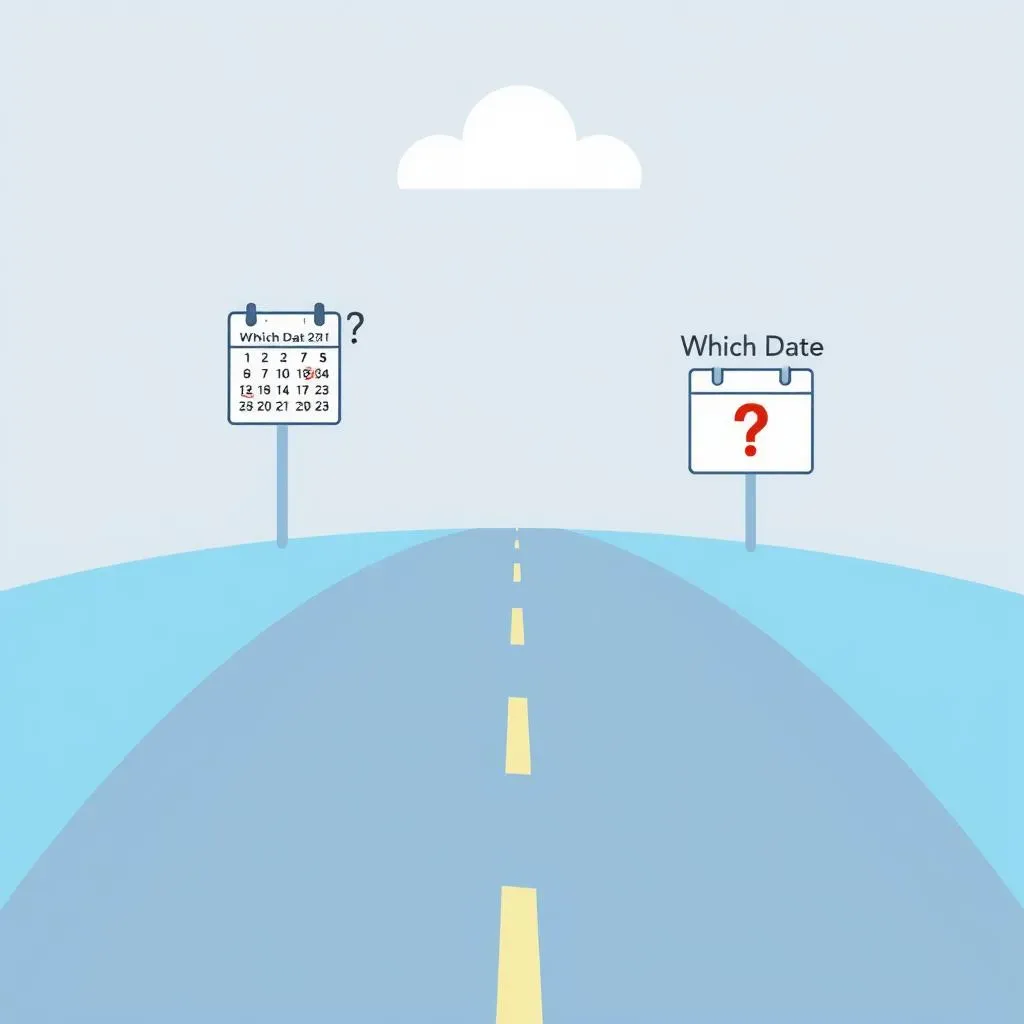
Making the Right Choice: Which Date and What Date
So, when you're standing at the crossroads of "which date" and "what date," how do you pick the right path? Honestly, most of the time people will get your drift no matter which one you use. It's not like the grammar police are going to show up. But if you want to be precise – and who doesn't love a little precision? – think about whether you're dealing with a limited set of options or if the field is wide open. If you've already narrowed things down, "which date" is your pal. If you're just starting to gather info, "what date" is the way to go. Here’s a quick cheat sheet to keep in your back pocket:
Scenario | Recommended Phrase |
|---|---|
Choosing from available slots | Which date |
Asking about an unspecified event | What date |
When options have been previously discussed | Which date |
When seeking general availability | What date |
